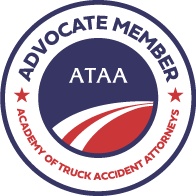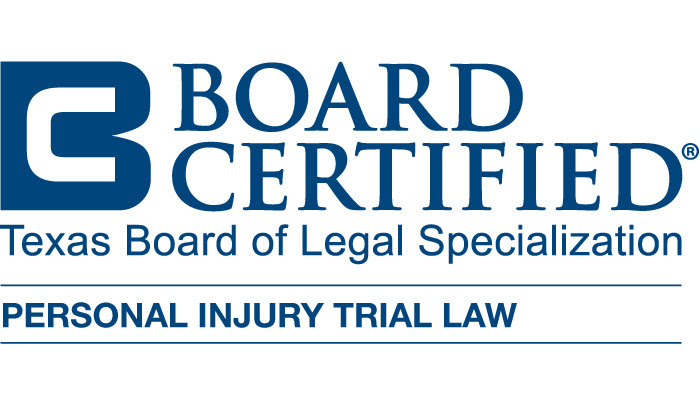In Texas, oilfield work is one of the most hazardous occupations. The state’s booming oil and gas industry provides employment opportunities to thousands, but with this comes a high risk of serious injury. Oilfield accidents can result in devastating injuries and even fatalities, leaving workers and their families grappling with significant physical, emotional, and financial challenges. When these accidents occur, determining liability is crucial for securing the compensation needed to cover medical expenses, lost wages, and other damages. One of the key legal principles that come into play in these cases is comparative negligence.


Understanding how comparative negligence laws impact oilfield accident cases in Texas is essential for anyone involved in the industry. These laws play a significant role in determining how much compensation an injured worker may receive. If you or a loved one has been injured in an oilfield accident, it is important to understand how comparative negligence might affect your case and how to navigate the complexities of the legal process to ensure that your rights are protected.
What Is Comparative Negligence?
Comparative negligence is a legal doctrine used to apportion fault among multiple parties in an accident. In the context of personal injury cases, including oilfield accidents, this doctrine is used to determine the degree to which each party is responsible for the incident. In Texas, the comparative negligence system is referred to as “proportionate responsibility.” Under this system, a plaintiff’s ability to recover damages is reduced by their percentage of fault in causing the accident. If the injured party is found to be partially responsible for the accident, the amount of compensation they are entitled to receive will be reduced in proportion to their level of fault.
For instance, if an oilfield worker is injured in an accident and is found to be 20 percent at fault for the incident, their compensation will be reduced by 20 percent. This means that if the total damages awarded amount to $100,000, the injured worker would only receive $80,000. It is important to note that in Texas, if a plaintiff is found to be more than 50 percent at fault for an accident, they are barred from recovering any damages at all. This is known as the “51 percent bar rule.”
My focus is to give a voice to families who have suffered a wrongful death or a serious injury to a family member caused by an 18-Wheeler, commercial truck, or a drunk driver. Contact us today, we can help you.Helping Injury Victims for Over 25 Years
How Comparative Negligence Applies in Oilfield Accident Cases
Oilfield accident cases can be complex, as they often involve multiple parties, including the injured worker, the employer, subcontractors, equipment manufacturers, and other third parties. Determining fault in these cases requires a thorough investigation of the circumstances surrounding the accident. Factors that may contribute to an oilfield accident include improper training, lack of safety measures, defective equipment, and human error. When an accident occurs, it is essential to identify all parties that may have contributed to the incident and assess their level of responsibility.
Comparative negligence laws come into play when there is evidence that the injured worker may have contributed to the accident. For example, if a worker fails to follow safety protocols, such as wearing protective gear or adhering to established procedures, and this failure contributes to their injury, they may be found partially at fault. In such cases, the worker’s compensation will be reduced according to their percentage of fault.
However, it is important to recognize that employers and other parties have a duty to provide a safe working environment and ensure that workers are properly trained and equipped to perform their tasks safely. If an employer or another party fails to meet these obligations and their negligence contributes to the accident, they may be held liable for the worker’s injuries.
Challenges in Proving Comparative Negligence
Proving comparative negligence in oilfield accident cases can be challenging. These cases often involve complex technical and factual issues that require a detailed analysis of the accident scene, equipment, and the actions of all parties involved. Gathering evidence, such as witness statements, maintenance records, and safety logs, is crucial for establishing the facts of the case.
In many instances, the employer or other defendants may attempt to shift blame onto the injured worker to reduce their liability. They may argue that the worker was negligent in some way and therefore should bear some or all of the responsibility for the accident. This is where the concept of comparative negligence becomes a critical factor in the case.
To successfully navigate these challenges, it is important to work with a legal team that has a deep understanding of oilfield operations and the specific laws that apply to these cases. Your legal team can help gather and analyze the necessary evidence, consult with industry specialists, and build a strong case to counter any claims of comparative negligence. It is essential to present a clear and compelling argument that demonstrates how the negligence of others contributed to the accident and the extent to which the injured worker should be compensated.
The Role of Employers and Other Parties in Oilfield Accidents
Employers play a significant role in ensuring the safety of their workers in the oilfield. They are responsible for providing proper training, maintaining equipment, implementing safety protocols, and monitoring working conditions to prevent accidents. When an employer fails to fulfill these responsibilities, they may be held liable for any resulting injuries. In some cases, third parties such as equipment manufacturers, subcontractors, or site operators may also be responsible for contributing to an oilfield accident.
For example, if a piece of equipment malfunctions due to a design flaw or manufacturing defect, the manufacturer may be held liable for the resulting injuries. Similarly, if a subcontractor fails to properly maintain equipment or adhere to safety protocols, they may share responsibility for the accident. In such cases, the injured worker may have multiple avenues for seeking compensation, and the principles of comparative negligence will determine the degree of liability for each party.
Understanding the roles and responsibilities of all parties involved in an oilfield accident is crucial for determining liability and securing fair compensation. It is important to conduct a thorough investigation to identify all potential sources of liability and to build a case that accurately reflects the extent of each party’s negligence.
Related Videos
Choosing a Personal Injury Attorney
Types of Compensation in a Truck Accident Claim
Impact of Comparative Negligence on Compensation
The impact of comparative negligence on compensation in oilfield accident cases can be significant. As previously mentioned, the injured worker’s compensation will be reduced by their percentage of fault. This reduction can have a substantial effect on the amount of money available to cover medical expenses, lost wages, and other damages. It is important to keep in mind that the injured worker’s fault must be accurately assessed and fairly reflected in the final judgment or settlement.
In some cases, the parties involved may attempt to reach a settlement before the case goes to trial. Settlement negotiations can be influenced by the comparative negligence laws, as both parties will consider the potential outcome if the case were to proceed to court. An experienced legal team can help negotiate a settlement that takes into account the strengths and weaknesses of the case, ensuring that the injured worker receives a fair and just amount of compensation.
It is also important to consider the long-term impact of an oilfield injury. Injuries sustained in oilfield accidents can be life-altering, requiring ongoing medical treatment, rehabilitation, and support. The reduced compensation resulting from comparative negligence can make it more difficult for the injured worker to afford the necessary care and maintain their quality of life. For this reason, it is critical to pursue the maximum compensation available under the law.
Protecting Your Rights After an Oilfield Accident
If you have been injured in an oilfield accident, it is important to take immediate action to protect your rights. The first step is to seek medical attention for your injuries and document the extent of your injuries and the treatment you receive. Prompt medical care is not only essential for your health but also for building a strong case. Medical records will play a key role in demonstrating the severity of your injuries and the impact they have had on your life.
It is also important to report the accident to your employer and ensure that an official report is filed. This report will serve as an important piece of evidence in your case. In addition, you should gather any evidence related to the accident, such as photographs of the accident scene, witness contact information, and any documents related to the equipment or safety protocols in place at the time of the accident.
After an oilfield accident, it is crucial to consult with an experienced legal team that understands the unique challenges of oilfield accident cases and the comparative negligence laws in Texas. Your legal team can help you navigate the legal process, protect your rights, and pursue the compensation you deserve. They can also advise you on the best course of action to take to maximize your chances of success, whether through settlement negotiations or litigation.
Understanding how comparative negligence laws impact oilfield accident cases in Texas is essential for anyone who has been injured in this dangerous industry. The complex nature of these cases and the high stakes involved make it important to seek legal representation that is equipped to handle the challenges of proving negligence and securing fair compensation. At Willumsen Law Firm, P.C., our legal team is committed to helping injured oilfield workers and their families navigate the legal process and achieve the best possible outcome for their case. If you or a loved one has been injured in an oilfield accident, contact Willumsen Law Firm, P.C. today to discuss your case and learn more about how we can help you secure the compensation you deserve.



